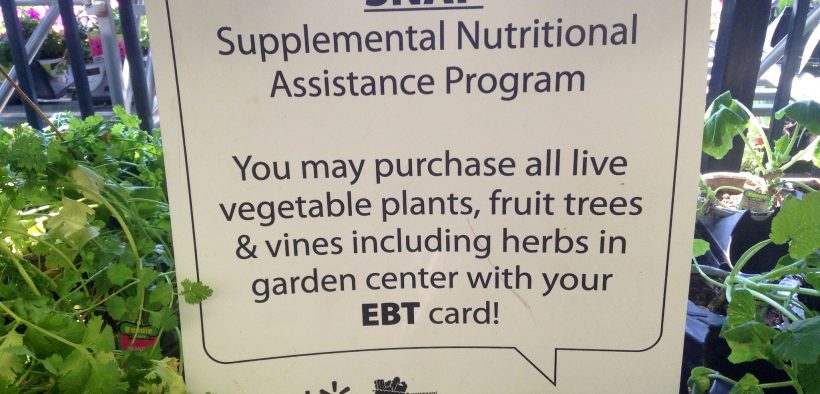Trump Administration Finalizes Food Stamp Cuts

“This is an unacceptable escalation of the administration’s war on working families, and it comes during a time when too many are forced to stretch already-thin budgets to make ends meet.”
The Trump administration announced Wednesday that it has finalized a rule to tighten work requirements for the Supplemental Nutrition Assistance Program (SNAP), which the Department of Agriculture (USDA) says will end benefits for nearly 700,000 people. The rule reflects the White House’s broader ambition to limit access to the social safety net.
“States are seeking waivers for wide swaths of their population, and millions of people who could work are continuing to receive SNAP benefits,” Agriculture Secretary Sonny Perdue told reporters. The administrator cited the low unemployment rate and said the cuts will save $5.5 billion over five years.
The rule will make it harder for states to waive a requirement that able-bodied adults without children work at least 20 hours a week or else lose their food stamps. Many states currently issue waivers to the requirement for specific municipalities with high unemployment, according to NPR.
The White House argues that the rule will encourage SNAP recipients to seek employment, but critics worry it will hurt people struggling to find steady work and have negative societal repercussions.
“The final rule would cause serious harm to individuals, communities, and the nation while doing nothing to improve the health and employment of those impacted by the rule,” James D. Weill, president of the nonprofit Food Research & Action Center, said in a statement. “In addition, the rule would harm the economy, grocery retailers, agricultural producers, and communities by reducing the amount of SNAP dollars available to spur local economic activity.”
In addition to the new finalized work requirements, the administration has proposed deduction caps for utility aid and to cut access to SNAP for poor working families. “A study by the Urban Institute shows the combined impact of these rules would cut 3.7 million people from SNAP in an average month,” reported the Washington Post.
Others argue that the strict rules, which override individual states’ waivers, will impede states’ ability to react to periods of high unemployment. “That change really weakens SNAP’s ability to assist the unemployed during an economic downturn,” Stacy Dean, vice president of food assistance policy for the Center on Budget and Policy Priorities, told the Post.
“This is an unacceptable escalation of the administration’s war on working families, and it comes during a time when too many are forced to stretch already-thin budgets to make ends meet,” said U.S. Representative Marcia Fudge on Wednesday.
The White House has encouraged work requirements for Medicaid as well, but the only state to implement the policy found that thousands of people lost their health insurance without any boost in employment, according to a study by the New England Journal of Medicine.
Similarly, critics say there is no evidence that cutting food stamps will encourage work. “The idea that people are ripping off the system of something, that’s just not true,” Craig Gundersen, a professor of agriculture and consumer economics at the University of Illinois, told NPR in April.
The Trump administration has made other moves to cut social services over the past three years. The White House’s third budget proposal in March contained hundreds of billions in cuts to federal programs like Medicare, Medicaid, public housing, food stamps, student loan aid, and other non-defense programs. In May, the White House also proposed a change to the way poverty is calculated that experts say would result in slashed benefits for millions of poor Americans.
Critics like journalist Aaron Maté fault the Democratic party leadership for failing to bring attention to the Trump administration’s efforts to cut social services for the poor.
“This, at minimum, is an undeniable fact: Democratic leaders, cheered on by media allies, are fighting harder to protect $400m in sales for US weapons firms & a proxy war in Ukraine than they are for the food stamps of over 700,000 low-income Americans,” tweeted Maté. “History will judge indeed.”


















mkigak